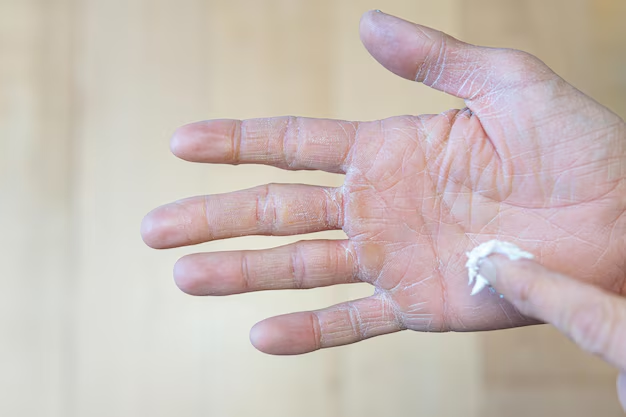Easing Arthritis: Understanding and Managing Joint Pain
Imagine waking up and getting out of bed, ready to take on the day, only to feel a sharp, persistent pain in your joints. For millions worldwide, this is a daily reality due to arthritis—a condition that can significantly impact quality of life. But living with arthritis doesn’t have to mean living in constant discomfort. With the right knowledge and tools, managing arthritis can become a part of your daily routine, and even bring relief.
Understanding Arthritis
What is Arthritis?
Arthritis isn’t a single disease; it's an umbrella term that covers more than 100 different joint-related conditions. The most common types are osteoarthritis, which involves wear-and-tear damage to joint cartilage, and rheumatoid arthritis, an autoimmune disorder that attacks the lining of the joints. Symptoms typically include joint pain, swelling, stiffness, and a decreased range of motion.
Who Can Get Arthritis?
Arthritis can affect people of all ages, sexes, and races, but it is more common as people age. Women are more likely than men to develop rheumatoid arthritis, while osteoarthritis is a frequent concern among older adults due to accumulated physical wear.
Understanding arthritis’s diverse range of conditions and how they uniquely affect the body is crucial in determining the best management strategies.
Practical Lifestyle Adjustments
Diet and Nutrition
Your diet plays a significant role in managing arthritis symptoms. A healthful diet can reduce inflammation and improve joint function. Consider these dietary recommendations:
- Anti-inflammatory foods: Incorporate berries, leafy greens, nuts, and fatty fish like salmon into meals.
- Avoid excessive sugar and refined carbs: These can increase inflammation, so minimize them for better joint health.
- Turmeric and ginger: These spices are known for their anti-inflammatory properties and can be added to meals for extra flavor and health benefits.
Regular Exercise
Exercise might seem counterintuitive when dealing with joint pain, but it remains one of the most effective ways to reduce arthritis symptoms.
- Low-impact activities: Swimming, walking, and cycling are gentle on joints while helping maintain flexibility and strength.
- Strength training: Building muscle can support and protect joints, reducing stress and pain.
- Flexibility and balance exercises: Yoga and tai chi improve mobility and prevent falls, a common concern for those with arthritis.
Weight Management
Maintaining a healthy weight is vital for those with arthritis, as extra pounds can increase stress on weight-bearing joints. Losing even a small amount of weight can significantly reduce pain and improve joint function.
Exploring Medical Interventions
Over-the-Counter Solutions
Many find relief from arthritis symptoms through over-the-counter (OTC) medications, which can help reduce inflammation and pain:
- NSAIDs: Nonsteroidal anti-inflammatory drugs, such as ibuprofen and naproxen, can relieve pain and inflammation.
- Topical Treatments: Gels and creams that contain anti-inflammatory ingredients can be applied directly to the skin over the affected joints.
Prescription Medications
For more severe symptoms, doctors may prescribe stronger medications:
- Corticosteroids: These can quickly reduce inflammation and pain.
- Disease-modifying antirheumatic drugs (DMARDs): Particularly useful for rheumatoid arthritis, these medications slow disease progression.
- Biologics: A newer class of DMARDs, biologics target specific steps in the inflammatory process.
Physical and Occupational Therapy
Therapy can be an integral part of managing arthritis. Physical therapists offer exercises tailored to improve joint function, while occupational therapists can suggest modifications to ease daily tasks.
Surgical Options
When other treatments do not relieve symptoms, surgical options like joint repair or replacement might be considered. These procedures can restore functionality and significantly reduce discomfort.
Complementary and Alternative Therapies
Acupuncture
Acupuncture, a traditional Chinese medicine practice, involves inserting thin needles into specific points on the body to relieve pain. Some studies suggest it can alleviate arthritis symptoms by releasing natural painkillers in the body.
Mindfulness and Meditation
Stress and pain are closely linked, so practices that reduce mental stress can also relieve physical symptoms. Mindfulness and meditation help control stress, which can, in turn, reduce inflammation and pain.
Assistive Devices
Canes, braces, or shoe inserts may help relieve pressure on joints and reduce pain. Occupational therapists can recommend the best devices for individual needs.
Building a Support System
Emotional and Social Support
Living with arthritis can be challenging, and having a support system is crucial. Engaging with support groups can offer emotional backing and practical advice, making day-to-day management more approachable.
Education and Awareness
Educating oneself and others about arthritis can lessen the stigma and lead to better support from family, friends, and colleagues. Awareness reduces misunderstandings about the condition, fostering a more empathetic environment.
Living Well with Arthritis
Arthritis doesn't have to dictate the quality of your life. By adopting healthy lifestyle choices, exploring various treatment options, and seeking the right support, you can effectively manage arthritis and continue to live actively and comfortably. While everyone’s experience with arthritis is unique, a proactive approach tailored to individual needs can go a long way in ensuring a better, healthier life despite the challenges.
Your Path Forward
- Embrace a healthy diet🫐: Focus on anti-inflammatory foods like fish, nuts, and vegetables.
- Stay active🏃♂️: Engage in low-impact exercises to improve joint flexibility and strength.
- Maintain a healthy weight⚖️: It can significantly reduce joint strain and pain.
- Explore therapy options🩹: Consider physical therapy or alternative treatments like acupuncture.
- Seek support💬: Tell your story, engage with support groups, and educate those around you.
Managing arthritis is about finding the right balance of lifestyle adjustments and treatments that work for you. Empower yourself with knowledge and support, making informed choices to keep moving forward with confidence and resilience.

Related Articles
- Are Bananas Bad For Arthritis
- Are Tomatoes Bad For Arthritis
- Can An Inflamed Nerve Cause Arthritis
- Can Arthritis Be Cured
- Can Arthritis Be Reversed
- Can Arthritis Become Septic After Infection From Injection
- Can Arthritis Cause Numbness
- Can Arthritis Cause Swelling
- Can Cracking Knuckles Cause Arthritis
- Can Cracking Your Knuckles Cause Arthritis
